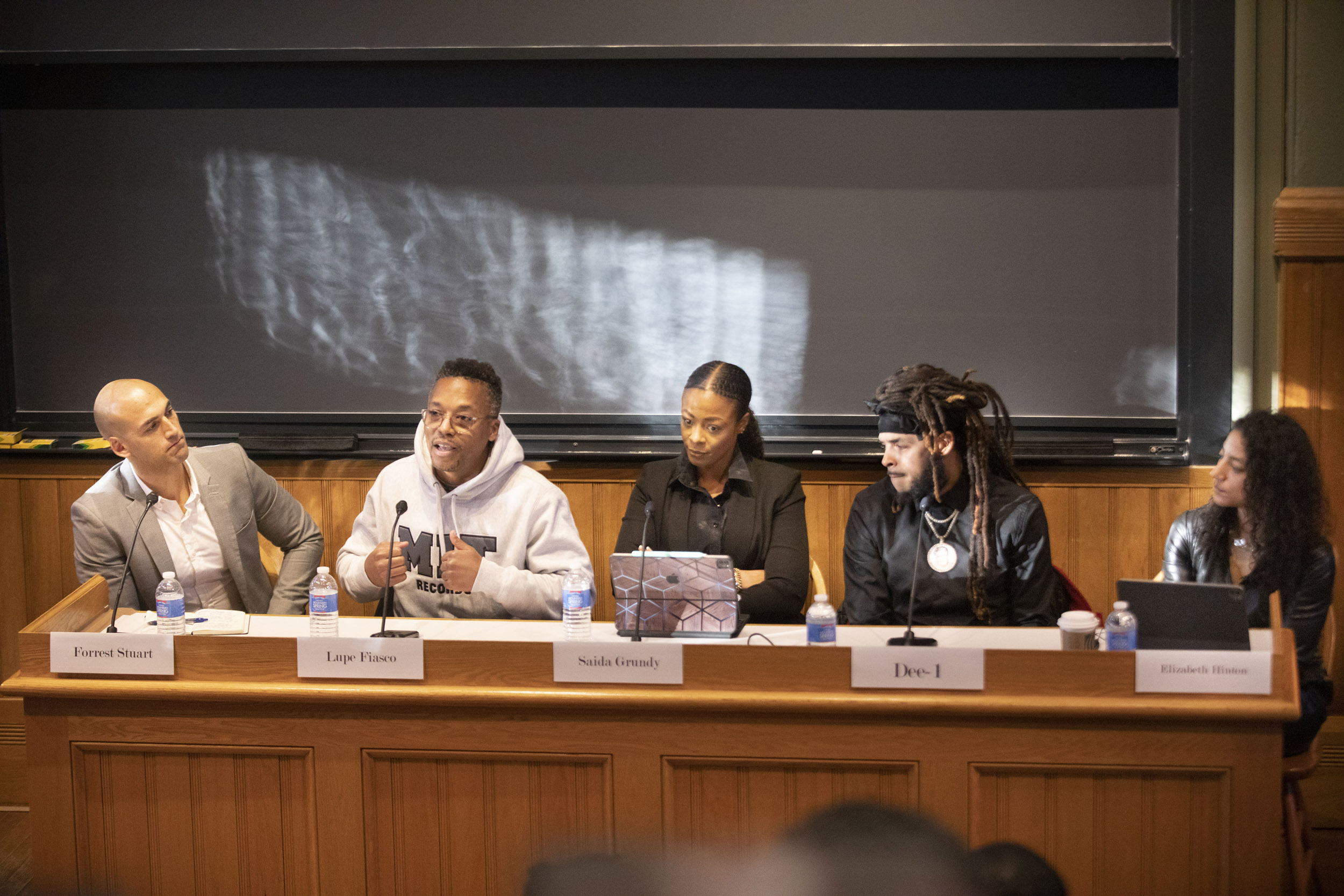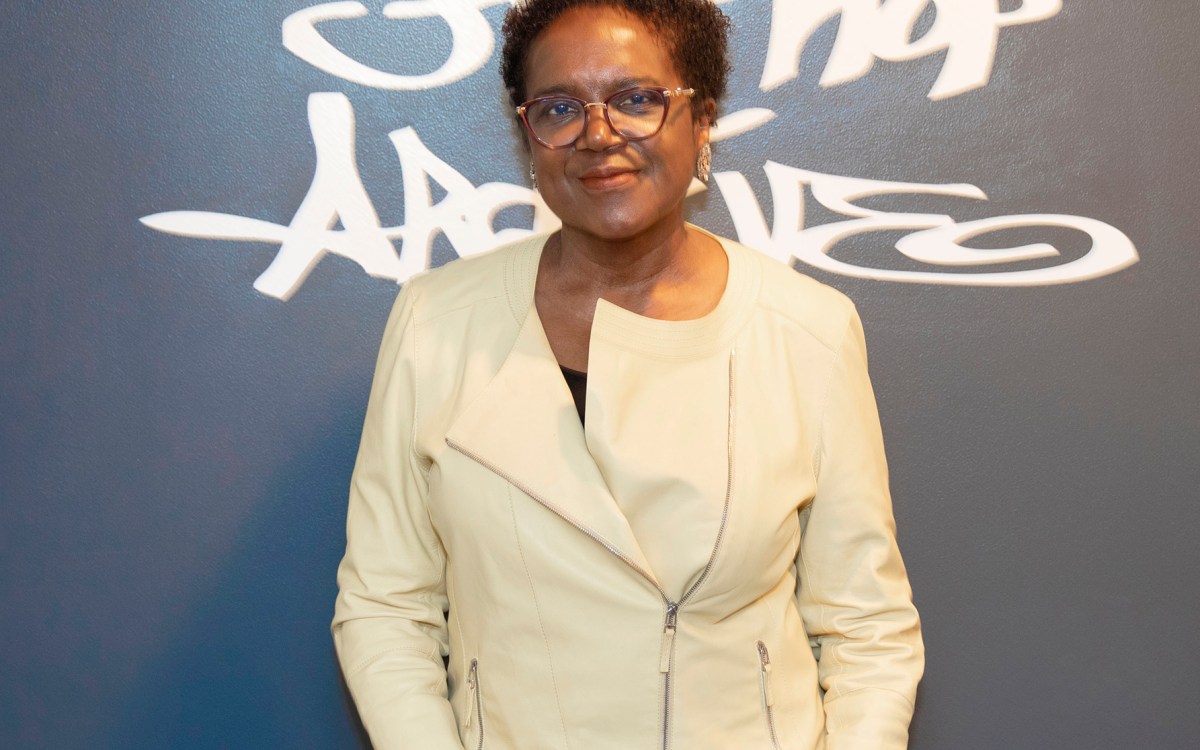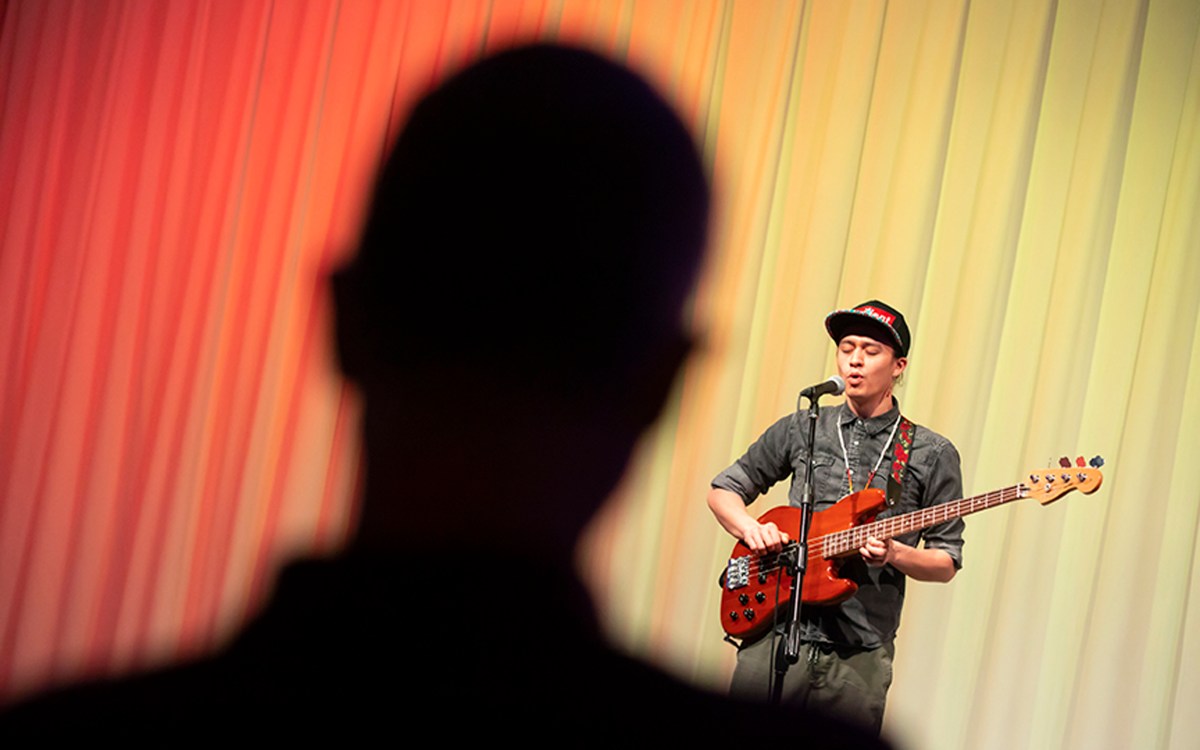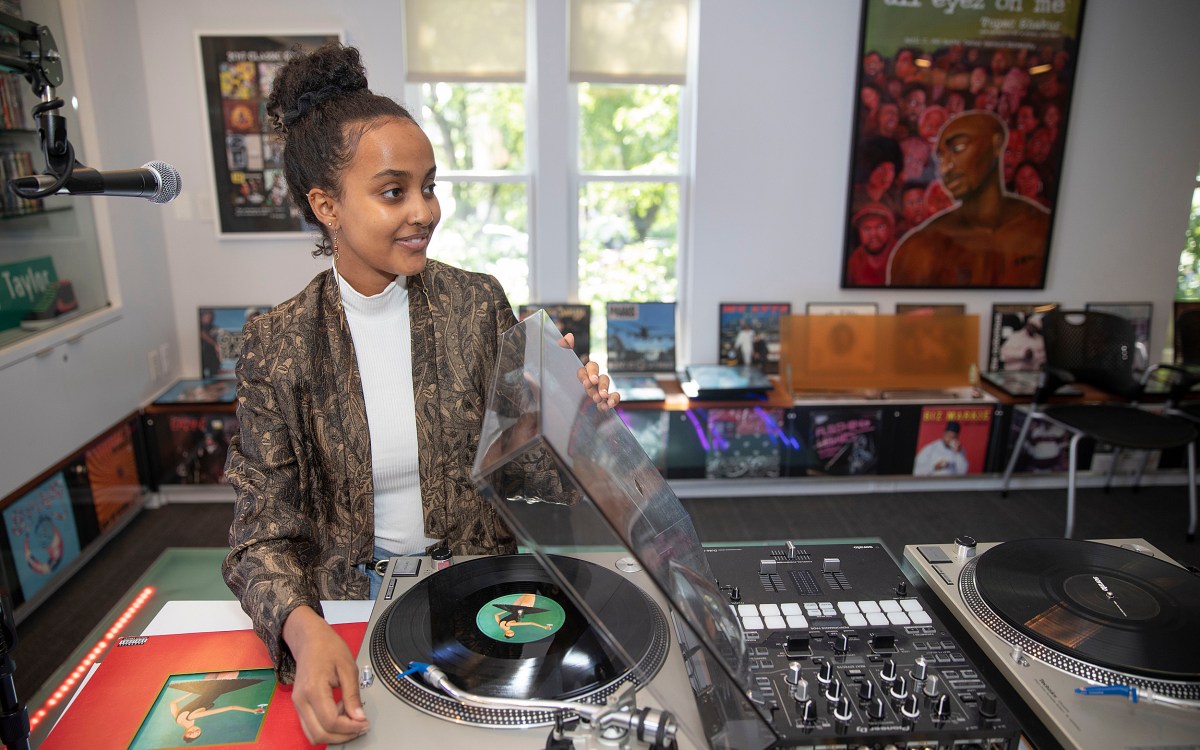
Photos by Kris Snibbe/Harvard Staff Photographer
Are drill musicians chronicling violence or exploiting it?
Rappers, activists, scholars debate controversy surrounding subgenre of hip-hop
Emerging from Chicago in the early 2010s, the subgenre of hip-hop known as drill music has become a creative channel for rappers worldwide to chronicle violence, drug abuse, and gang activity in their communities. But some argue that drill artists are not just confronting violence, they are glorifying, perpetuating, and profiting from it.
A panel of rappers, activists, and scholars explored a range of views on the issue at a recent talk hosted by the Hutchins Center for African & African American Research and led by Elizabeth Hinton, associate professor of history and African American studies at Yale University.
“People around the country are dancing. Dope. I’m thinking, ‘You all dancing on graves. People are dying,’” Grammy Award-winning rapper and Martin Luther King Jr. Visiting Professor at MIT Lupe Fiasco said about the popularity of drill.
Dee-1, New Orleans rapper, activist, and Nasir Jones Hiphop Fellow at Harvard’s Hiphop Archive & Research Institute, agreed. He recalled the time one of his slain students was memorialized by family and friends at a funeral with music glorifying violence. “In a way, we’ve become too numb and too desensitized to the literal words that are being spoken in this music.”
The media is partly to blame, Dee-1 said. He called out music website Pitchfork for publishing an article titled “The Exploitation of New York Drill Hits a Disturbing New Low,” despite being the same publication that ranked the top 11 songs “that define Chicago Drill.”
Dee-1 raps about drill music
transcript
Transcript:
I’m so easily entertained by ratchet activity. Body negative imagery always seem to interest me. I tell myself, ‘No more music glorifying evil, selling drugs, womanizing, killing our people.’ Then I hear a song with a tight beat and can’t deny it. The hook is catchy, so I subconsciously memorize it. Next thing you know, I’m reciting all the lyrics, and my day don’t feel complete unless I hear it. Inviting darkness in my spirit, this can’t be light. I’m craving what I’m ‘posed to be fighting, this can’t be right. I must be blind to the effects; this can’t be sight. That is in the power of the tongue, and this can’t be life. Be careful what you get involved with because you can’t support a cause but then hate the effects that it causes.
“Elected officials like Mayor Eric Adams in New York have described drill music as a kind of devilish bargain, where music industry executives and social media companies accelerate and commodify gang violence for profit,” said Brandon Terry, the John L. Loeb Associate Professor of the Social Sciences and co-director of the new Institute on Policing, Incarceration & Public Safety at the Hutchins Center.
One problem with confronting the issues surrounding drill music, panelist Saida Grundy said, is the risk of feeding the idea that Black culture is more destructive than other cultures. At the same time, the assistant professor of sociology and African American and Black diaspora studies at Boston University noted that examination of drill cannot ignore the individuals affected by the genre.
Forrest Stuart, professor of sociology at Stanford, cautioned that villainizing drill music gives the carceral system ammunition against young Black men. The MacArthur Fellow’s current research finds that some prosecutors and police are using defendants’ involvement with drill music, including sharing lyrics on social media or “flashing around a replica gun on a YouTube video that was made five years prior,” to bump up charges.
Stuart’s past research on drill in Chicago’s South Side also revealed how young people are using drill to map out which areas of their neighborhoods are safe, and which are not. “By hearing who’s being shouted out negatively and who is being shouted out positively, they can quickly understand whose neighborhood they’re in and who they’re feuding with,” the urban ethnographer explained.
“The conversation was definitely a reflection of how nuanced the topic is,” said Benjamin Alexander ’23. “I definitely reflect on my role as a student and a consumer. What does it look like to think about the extent to which I’m complicit and contributing to some of the issues of violence that we see? What exactly does my role look like? And what approach toward a solution do I take?”
For Dee-1, the answer to that question is simple. “As a consumer, you have the choice to literally support whatever it is that you would like to see more of,” he said. “If you truly want to see your conditions change, as an artist you have a choice to say, ‘I might have to sacrifice some popularity or some paper for the sake of putting out content that is actually progressive and conducive to a better world around us.’”







